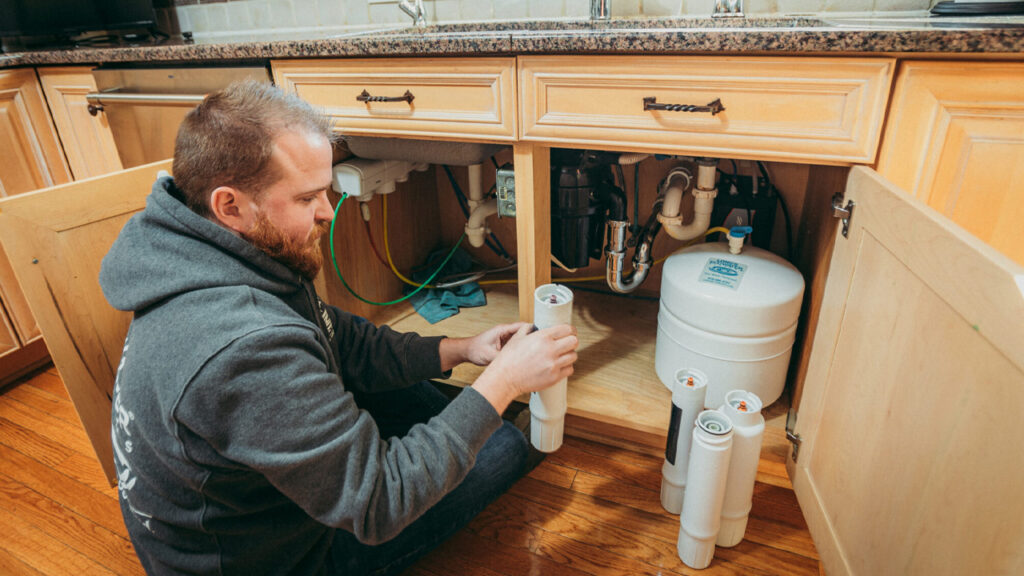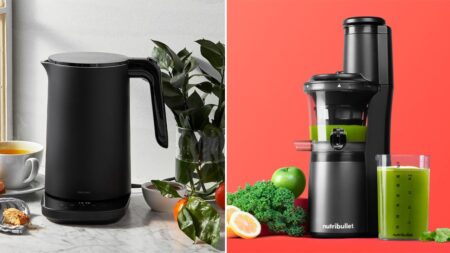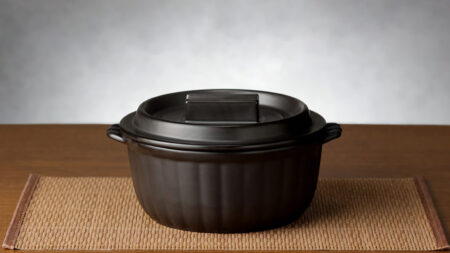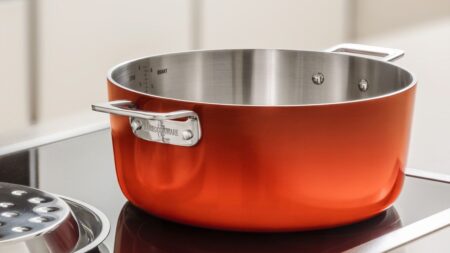If you are using well water or water from rivers or lakes, your water is at higher risk of being contaminated by pollutants, bacteria, and chemicals. A water treatment system can help in such cases to make water safe for daily use, but choosing the right system makes all the difference.
Every home has different water quality needs, so it is essential to clearly understand your water source and available options. This knowledge will help you choose the safest and most effective water treatment system for your household. Here are the essential factors you should evaluate before buying one:
Know What’s in Your Water
Before choosing a water filtration system, it is essential to know what contaminants are present in your water. Knowing your water’s total dissolved solids (TDS), hardness, turbidity, and chemical composition will guide your filtration system choice.
The most important factor is whether the system can effectively remove the specific contaminants found in your area. Each year, the Environmental Protection Agency (EPA) requires community water suppliers to provide a Consumer Confidence Report (CCR), which details your water’s quality, sources, and any detected contaminants. You can access your CCR through your water supplier or online, or you can test your water yourself if you want immediate results.
Most water filtration systems can remove contaminants like mercury, lead, and hydrogen sulfide. However, some substances, such as sodium, sulfate, and chlorides, require specialized systems like distillation or reverse osmosis. To treat bacteria, you will need ultraviolet disinfection or microbiological water purifiers. Always choose a water treatment system designed to address the contaminants that matter most for your household’s safety and health.
Common Types of Water Treatment Systems
A water filter is the most common option for homes. It is equipped with activated carbon filters to remove sediment, chlorine, and some chemicals, and also improve taste and odor. Water softeners fix hard water by removing calcium and magnesium using a process called cation exchange, while UV purification kills bacteria and viruses. As of the reverse osmosis systems, they push water through a special membrane with extra filters to remove even more contaminants.
Water distillers work by boiling water and then collecting the steam, which removes most impurities. Distillation can get rid of some volatile organic compounds (VOCs), but VOCs with lower boiling points may not be removed and would need an activated carbon filter.
Where to Place the Filtration System
When choosing a water treatment system, it is important to know where it will be installed in your home. The two main options are Point-of-Entry (POE) and Point-of-Use (POU) systems, each serving different needs.
POE systems are installed at the main water line where water enters your home. It treats all the water used throughout your house, including water for drinking, bathing, cooking, laundry, and appliances. Some POE system types are whole-house filters, water softeners, iron filters, and acid neutralizers.
On the other hand, POU systems are installed at a single fixture, such as under the kitchen sink or a specific faucet. They are meant to treat only the water at that specific location, typically for drinking and cooking. Under-sink reverse osmosis units, countertop filters, and faucet-mounted filters are some of its examples.
If you want to eliminate an unpleasant odor or soften water for both drinking and bathing, a whole-house filter is the best option. However, if you are only concerned about your drinking water, you may not need to filter what comes out of the taps in your bathroom.
What Certifications Apply
NSF International is a public health organization that certifies water treatment products to make sure they meet safety and performance standards. When shopping for a water treatment system, look for the NSF certification mark, which shows the product has been tested for quality and can remove specific contaminants as claimed. You can also look for the Water Quality Association (WQA) Gold Seal for more reliability.
Choosing a system from a well-known company and reading the technical details like the type of filter, how to replace it, and which contaminants it removes will help you pick the right product. With the right certified system, you can feel confident that your water is safe for drinking, cooking, and bathing.
As an informed consumer, you should navigate the variety of water treatment systems to choose one that effectively addresses the specific contaminants identified in your Consumer Confidence Report (CCR).
Capacity and Space Requirements
The capacity of your water treatment system should match your household’s actual water usage. An oversized system will cost more to buy and maintain, while an undersized system may not meet your needs or perform well. Also, make sure you have enough space for installation, maintenance, and filter changes – whether the system is going under the sink, in the basement, or on the countertop.
Overall cost and maintenance
Before buying a water treatment system, think about the total cost. This includes the system price, installation, and ongoing costs like filters, electricity, and maintenance. Compare options from trusted brands to find one that fits your needs and budget.
Reputation and Support
When choosing a water treatment system, brand reputation and support are key factors to ensure long-term reliability. Opt for an established brand, as these companies are more likely to provide better performance and reliability for their products.
Also, research online reviews to compare customer experiences and product performance. It is also important to confirm that replacement parts are readily available and that the manufacturer or dealer provides reliable technician support for installation and maintenance.
Also Read: How to Maximize Rainwater Harvesting in Your Garden
Best Drinking Water Purification Systems
When looking for the best water treatment system, you should focus on your specific needs, budget, and the type of system that fits your situation. Consulting with experienced professionals can help you understand these factors and recommend the most suitable options. Their guidance is one of the best ways to find the best drinking water purification system for families or individuals. For your convenience, we have listed some of the best water treatment systems you can go for:
1. Long’s EcoWater Systems
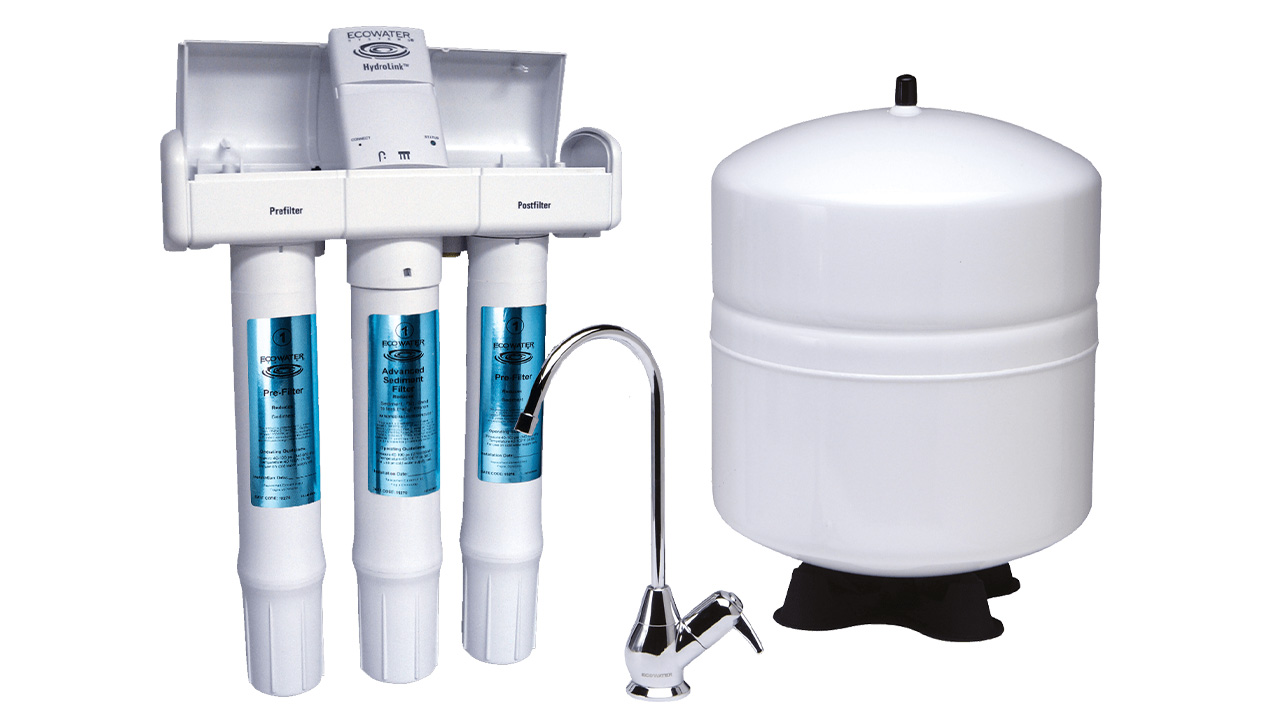
Established in 1925, EcoWater is recognized as the world’s oldest and largest water treatment company. Long’s EcoWater Systems is a locally owned and operated entity that has served the Allentown, PA community since 1949 and is the area’s only EcoWater dealer.
Its team of professionals customizes solutions to meet different customers’ needs while also handling everything from installation to regular maintenance. They combine the latest technologies and trusted products to bring cleaner, safer water to households. Beyond improving the taste of tap water and beverages, its purification systems help promote healthier skin and hair, and reduce limescale buildup in pipes and appliances to provide better efficiency and longevity.
For added convenience, EcoWater offers a user-friendly app that allows homeowners to monitor their water purification systems remotely. The app provides alerts for excessive water usage, tracks flow levels, and offers additional system insights about the home’s water quality.
Key Features
| A trustworthy provider of the high-quality products and services | Average five-star rating on Google Reviews based on 1,300+ reviews |
| Free in-home water consultations – including complimentary testing – with the results used to propose a custom water treatment solution | EcoWater drinking water systems meet or exceed federal regulators’ requirements for the removal of bacteria, lead, and viruses, and these options work on both city and well water supplies |
2. Aquasana
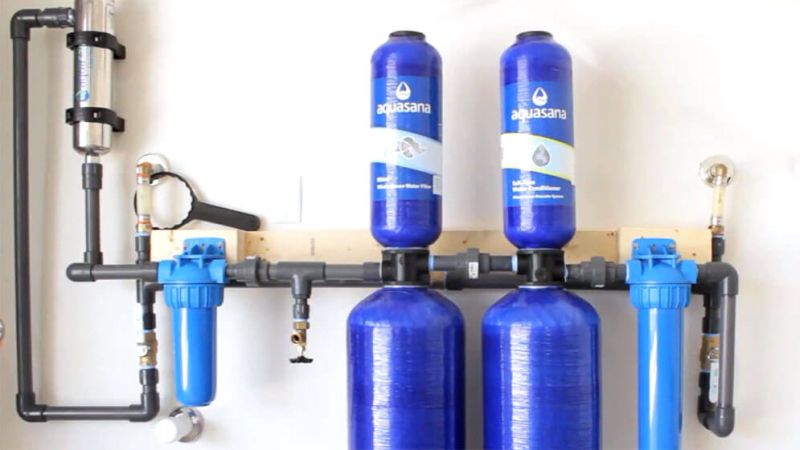
Aquasana has been a leader in water filtration for over 25 years, continually prioritizing effective methods of maximum contaminant removal. The brand’s award-winning products range from countertop models to whole-house systems, making it easy for people to find solutions based on their overall usage and other particulars.
Comprehensive warranties help purchasers feel reassured that their water filtration systems are high-quality options that are covered if something goes wrong. Additionally, customers wishing to spread the cost of these products can get real-time financing decisions from a third-party provider when shopping online.
Product manuals and installation videos are available on its website for easy reference, and there is also a link to find nearby installers. These resources help people start enjoying great-tasting water sooner.
Key Features
| This firm holds numerous patents and has a team of over 30 United States-based engineers and scientists working to develop industry-leading products | Aquasana supports its claims with data sheets for every product sold, helping customers decide if they have found the best drinking water purification system for their requirements |
| All products have 90-day satisfaction guarantees, allowing customers to experience water purification without risks | The filters in these water purification systems undergo rigorous testing and receive certifications from third-party agencies |
3. APEC Water
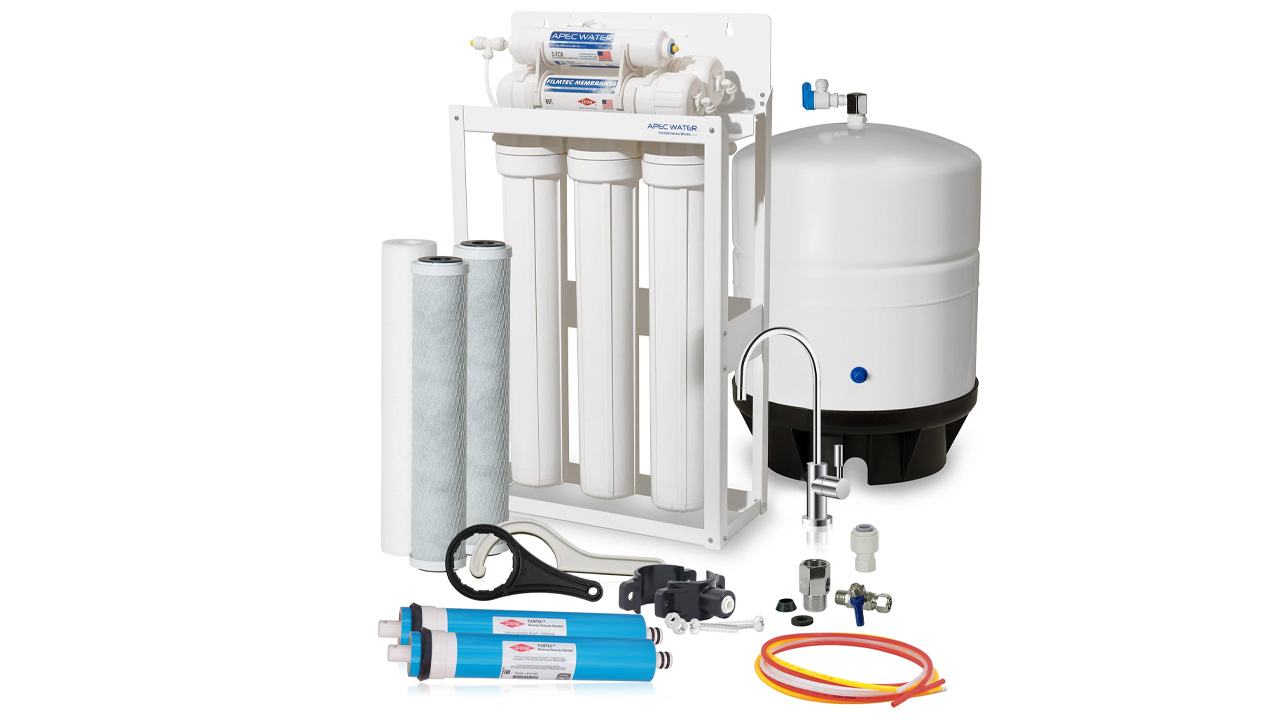
APEC Water has more than two decades of experience and patrons worldwide. It specializes in reverse osmosis and whole-house systems for residential and commercial customers while prioritizing reliable and highly functional products.
Engineers design and test all items at laboratories within the United States and follow thorough inspection procedures before shipping them. Additionally, this enterprise is among the last to manufacture its membranes and filters in the country. Since the filters can treat up to 4,000-5,000 gallons of water, that large capacity means users need to change the filtration components less often while continuing to get great results.
APEC Water’s capable and caring customer service team provides expert support and can supply all the necessary replacement parts for as long as a customer owns their system.
Key Features
| This filters remove up to 99% of contaminants | A single APEC Water reverse osmosis system can help an individual avoid using up to 1,460 plastic bottles each year |
| APEC Water designs its units for self-installation, including features such as color-coded tubing, to assist households, resulting in 95% of customers doing the job themselves | Most orders ship the same day or within 24 hours, although the business also has expedited service for people who need their filters as fast as possible |
4. Aquasure
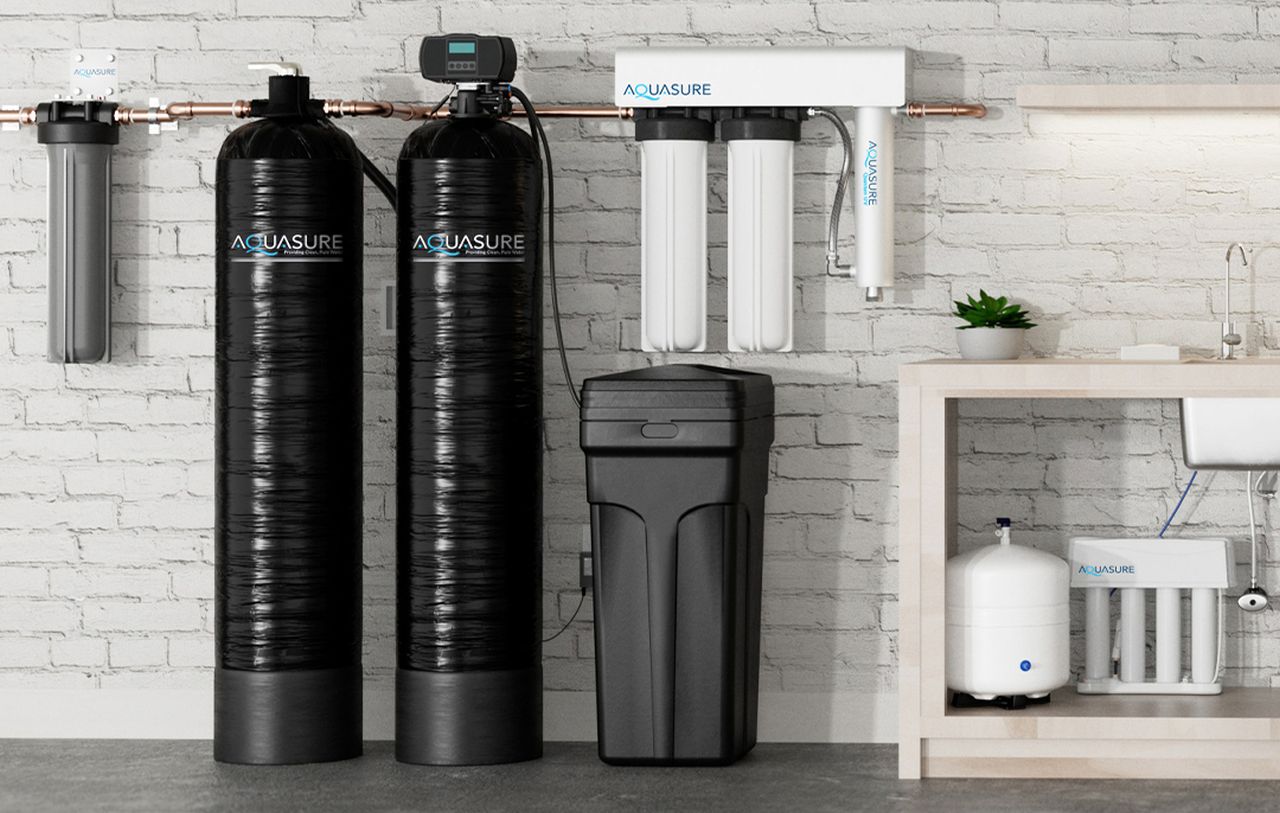
Aquasure has provided top-rated drinking water purification systems to residents throughout the United States for more than 25 years. An extensive product assortment and an attentive customer service team make it easy for households to find the most suitable solutions. Interested customers can also review product manuals, installation guides, and other resources online to become well-informed before buying.
Whether you want ultraviolet models or reverse-osmosis filters, these and many other options are available. Shoppers can see specifications, products, and reviews online to narrow the possibilities quickly. It is also easy to filter the items according to specific parameters, such as the house size or desired flow rate.
A convenient subscription service allows homeowners to save on replacement filters while automatically receiving them on a preferred schedule. This option ensures they always have supplies available when they need them and do not need to remember to place orders themselves.
Key Features
| Free shipping on orders over $99 | The company has more than 1.5 million satisfied customers, who collectively have systems that have produced over 5.80 million gallons of water |
| Buyers can get two-year extended warranties on all Aquasure products registered within 60 days | Consumers can qualify for financing through a third-party provider by applying directly on the Aquasure website |
Methodology
The selection process for the best drinking water purification system providers on this list included examining review-related details — from customer sentiment to the overall number of submissions — and particulars indicating users’ satisfaction with their water purification systems and the reasons behind their ratings. This feedback appeared directly on the providers’ websites and via numerous external sources. Since many consumers want to find the best drinking water purification system for families, the selection process involves factors important to that consumer group, such as reliability, safety, and third-party effectiveness certifications.
Finding the Best Drinking Water Purification System
These providers are some of the top places to purchase a drinking water purification system for household use. Factors such as industry experience, broad selection, and excellent customer service influence the purchasing experience and overall enjoyment.
Follow Homecrux on Google News!
